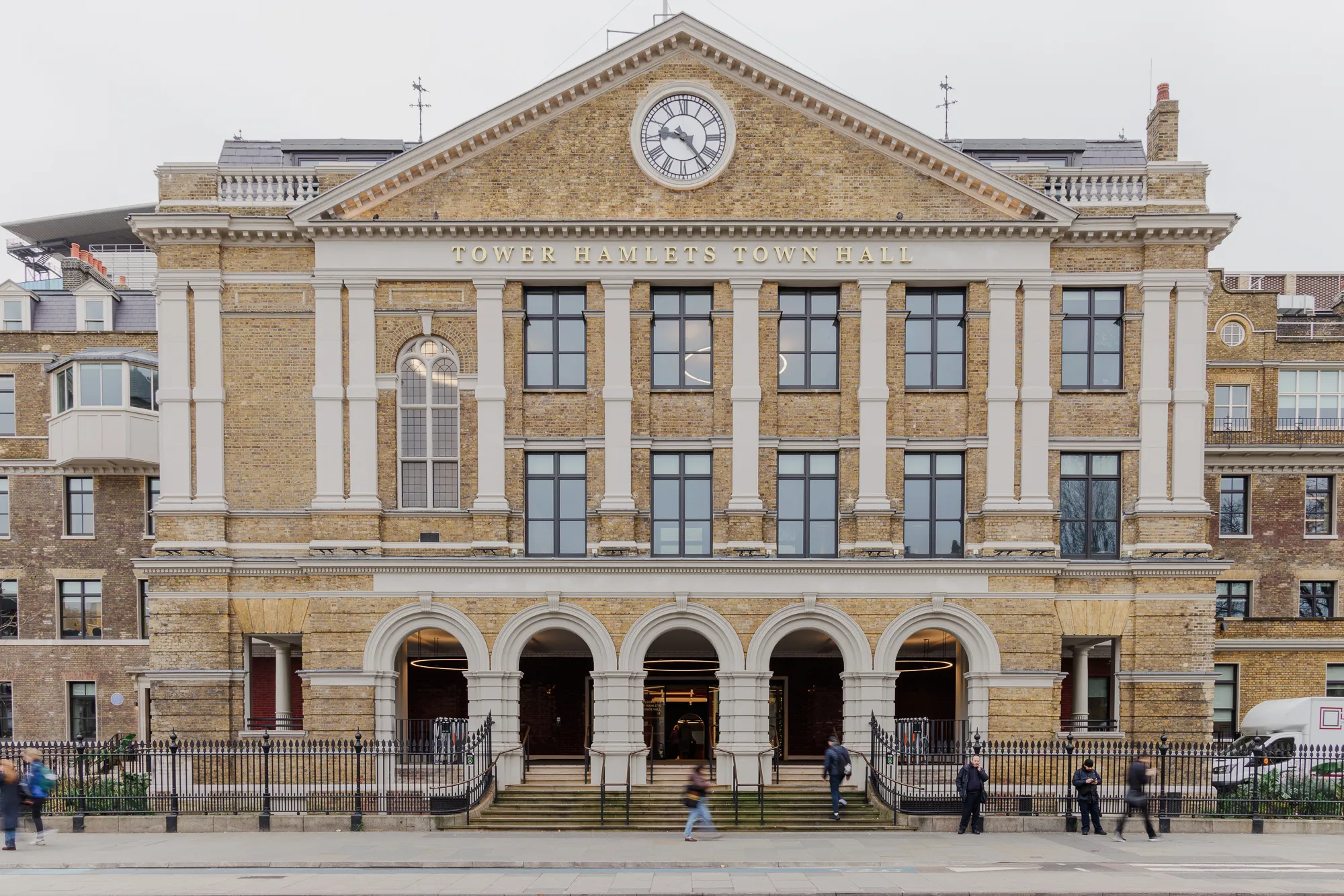Magazine Article
Career Spotlight with Matt Wong
Read about Matt Wong's career journey through the public sector
24 April 2024

Last year, we asked our officer network to nominate a line manager they had a great experience working with and learned much from. One manager was Matt Wong, the Plan-Making Manager at Tower Hamlets.
We spoke to Matt to learn more about his career journey and hear about the joys, challenges and complexities of working in the public sector.

What has your career journey looked like?
I was born and raised in Melbourne and studied Urban and Regional Planning at the Royal Melbourne Institute of Technology (RMIT).
After graduating, I was keen to start my career in the public sector. I consider the local government system as one of the best ways to get a holistic understanding of town and urban planning because you’re able to experience the nuts and bolts of the planning and urban design sector from the ground-up. I started my career in a local authority in a peri-urban area in the north-east region of Melbourne, which allowed me to work on residential, urban intensification, and rural projects. Then, like many Australian planners, I left for London to try to forge my career over here.
What drew you into public sector work in London?
You’re at the forefront of decision and plan-making in the public sector. A local authority is responsible for creating plans that last 10 to 15 years, and there is a significant opportunity to develop those for the community.
I was interviewed for a Development Management role at Tower Hamlets on my second day in London and started a week later! I had to learn a new planning system. While my time in Melbourne focused on small-scale, residential, and peri-urban projects, development and regeneration is on a much larger scale in London. At Tower Hamlets, we receive a significant amount of large-scale applications and I have worked on a number of strategic schemes across the borough.
After a year in London, I took on a new project within the plan-making/policy team. This was a significant change, as the role was more strategy and spatially-focused, creating a long-term master plan for the area of South Poplar for the next 15 years.
This area of South Poplar sits at the foot of Canary Wharf and yet is one of the most deprived areas in London; the masterplan attempts to address inequalities, provide significant infrastructure improvements, optimise land and introduce development more equitably. From there, I took on a permanent position in the policy team, and since last year, I have been managing seven officers.
What does a day in your role look like?
In my role, I oversee and manage all planning policy documents and strategic projects for Tower Hamlets.
My days vary from one to the next depending on what projects we’re working on and what stage we’re at. Right now, my biggest focus is the new local plan. We’re currently at the consultation stage, which varies from meeting with the public and community groups to landowners and developers. The other side of my work is developing the plan, including in-depth research and analytical work, reviewing our approach to housing delivery, affordable homes thresholds, determining the approach to declining demands for office floorspace, developing proposals to become net zero and working with architects and urban designers to determine capacities, principles and guidelines on new sites, for example.

What complexities and challenges do you experience working in the public sector?
The most immediate challenge for most public sector organisations is financial restraints.
Across the country, everyone is experiencing the cost of living crisis, and that’s felt a lot in the public sector. Every project and expenditure is reviewed on a microscopic level. I am fortunate to have a team of seven, but it’s probably not enough. Given the complexities of working in Tower Hamlets, it’s very difficult to resource time effectively, and we have a lot of people working overtime. We could ease the load if we had more resources and budget.
Did you find there were lots of opportunities in the public sector?
I think there’s a massive opportunity for growth within the public sector. Tower Hamlets has different positions at each level, from graduate to team leader.
Tower Hamlets is an exciting and varied place to work. The borough has the highest housing target in London, the largest pipeline of tall buildings in the country, and one of the country's largest capacities of office space, including Canary Wharf. On the opposite end, the borough has one of the highest indicators of child poverty, overcrowding and underemployment. Working within these extremes brings a hugely diverse workload to ultimately ensure that we deliver a better outcome for our communities.
What do you enjoy most about your work?
I enjoy working on large-scale, long-term strategic projects impacting communities and how places develop.
One of our key priorities as an organisation is providing more affordable homes. We’re creating a policy that seeks to secure 40% of all new homes to be genuinely affordable, which is relatively new in London, where the benchmark is 35%. I am passionate about speaking directly to our communities; we organise events throughout the year, speaking with local people and community groups to ensure they can significantly influence decision-making.

Is there any project that you’re particularly proud of?
We’re developing a new Local Plan for Tower Hamlets, and we’ve been quite ambitious.
It outlines how we will achieve Net Zero as a borough by 2045, deliver 52,095 new homes by 2038, allocate 36 sites each with the ability to provide at least 500 new homes and ambitious policies on gender-inclusive design. We’ve also produced an interactive story-based platform called StoryMaps, which allows the community to see our policies in an interactive and spatial way; a tool of this kind is unique in the sector and a significant step in the push towards digital planning. Regarding gender-inclusive design, Jennie Savage, a Public Practice Alum, interviewed over 350 women and girls and used this platform to record and geo-locate the places discussed to show how their conversations related to the wider borough. We’re trying to be innovative in engaging our communities and showcase our important work.
What’s next for you?
I’ll be moving to a new role within the public sector as Senior Area Manager in the Housing and Land team at the Greater London Authority (GLA). This role will focus on delivering on the Mayor of London’s ambitions to tackle the housing crisis and build the homes that Londoners need, including partnering with different councils, developers and housing associations to provide more genuinely affordable homes across London.
Public Notice
Want to read more articles like this? Get the full magazine Public Notice, which is available to buy now.
Contributors
Matt Wong
Senior Area Manager
Benoit Grogan-Avignon
Photography